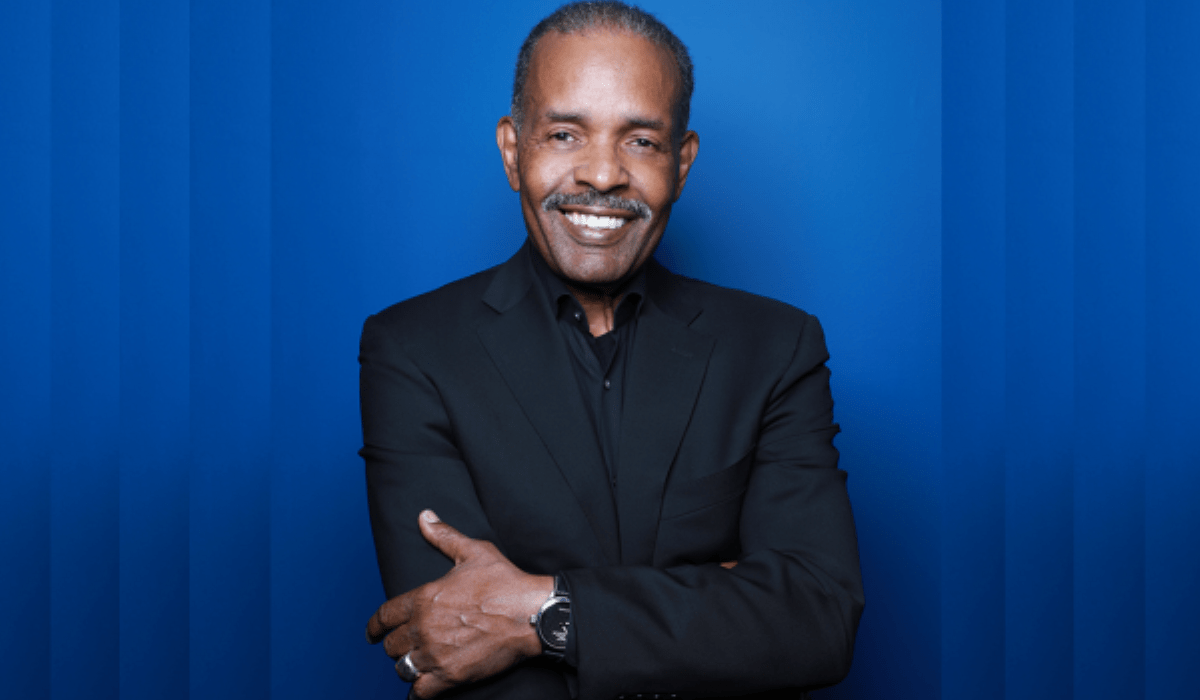His voice can be calming and assuring, but Joe Madison can also confront his listeners. The veteran SiriusXM host just returned to his Washington studios for the first time since the Spring of 2020 and found calendars “frozen in time” due to the pandemic.
He said the satellite radio company used the time with everyone working at home to modernize the equipment.
“On one hand, it’s really been great to be able to walk into a practically new updated studio,” Madison told BNM. “But on the other hand, I wake up every morning at 3:30 prepping for the show. All I have to do is roll out of bed, walk a few feet to the kitchen table.”
Madison expects to work in the studio primarily, but he’ll keep the remote option as needed.
As life changed for listeners and hosts, Madison, 72, said working from home was accepted as the “new normal,” although the biggest complaint is “people might hear the microwave go off,” he laughed.
Madison hosts the morning drive slot (6 a.m. to 10 a.m.) on SiriusXM’s Urban View channel 126.
Radio Calling
Madison has been on air professionally for 40 years. But, as with many who get into broadcasting, his start came on his college radio station – Washington University in St. Louis — where he would earn a Bachelor of Arts in Sociology a half-century ago.
“It had just about enough power to light a lamp,” he joked.
However, arriving at the legendary WXYZ in Detroit a decade later was “a fluke.” Madison was able to parlay guest appearances as head of the NAACP Detroit chapter into his weekend show. Program director Michael Packer approached Madison about the radio position that he would hold for ten years.
“[I] sort of learned the business from the ground up,” Madison said.
Despite his radio roots in college, Madison needed polishing and planned to enroll in a broadcasting school. But Packer urged him to stand clear of extra education.
“Anything they teach you at a broadcast school we’re going to have to undo it,” He recalls Packer declaring.
So, Madison kept his unique style and experience untouched on the mic. His first full-time gig was hosting the overnight slot at WWDB in Philadelphia. Madison was the only African-American air talent on the station at the time.
“It was also the first show I got fired from,” he said.
Madison claims management dismissed him because he talked about Blacks too much. Even though Madison was established as a civil rights activist and still held a role with the NAACP, “they knew that when they hired me,” he said.
“It was not the most pleasant experience,” Madison said of his time at WWDB.
However, as the saying goes, as one door closes, another one opens. So it opened for Madison at legacy radio station WWRC in Washington.
He stayed for several years until a format change connected him with Cathy Hughes, who ran Radio One and the flagship WOL-AM.
While there, burgeoning satellite radio grew, and WOL added listeners with XM Radio, giving Madison an increased presence. That led to a full-time offer at XM, which since combined with Sirius, where “The Black Eagle” has soared for more than two decades.
Style and Substance
Separating Madison from the pack of radio hosts is his originality, authenticity and ability to be daring. That advice came from Aretha Franklin, who was a regular listener to his show.
“Most important of all is, to be honest,” he said. “I never will lie deliberately to my audience.”
Another key to Madison’s longevity—R-E-S-P-E-C-T.
“I’m only confrontational to those folks who come at me confrontationally,” he said.
Madison is considered “radioactive,” but he points out two words and the title of his soon-to-be-released memoir.
Making a difference, in 2015, Madison was the first US talk show to broadcast from Cuba in more than 50 years. He also brought the show into a civil war in southern Sudan and broadcast from Haiti after the devastating 2010 earthquake.
Additionally, Madison took his show to several locations in the aftermath of Hurricane Katrina.
While not necessarily a model for his career, Howard Stern is someone who Madison put on a pedestal.
“He’s original, and that is what has made him a successful broadcaster over these many years,” he said.
Reminiscent of a scene from “Private Parts,” where WNBC researchers determined that people who didn’t like Stern listened longer than the rest, Madison admitted, “Even the haters, who call in, you know it’s fascinating, they keep calling, and they keep listening. So, they don’t go anywhere.”
Madison learned from a former host at WXYZ, the late-Mark Scott.
“We had absolutely, politically, culturally, nothing in common,” Madison said. “But he took me under his wing.”
Scott gave tips, including how to address callers in certain situations.
“He always would tell me, ‘The voice doesn’t lie,'” Madison remembered. “He probably was one of the best mentors I’ve had in this business.”
While Madison welcomes all listeners and encourages those with varying views to call, he is most associated with being a progressive talker. Regardless of the label, it is not automatically in lockstep with the Democrats.
Interviewed before the Infrastructure bill passed in the House, Madison has been “upset” with President Joe Biden and held protests on whether to filibuster.
But Madison is more enraged by the Senate Republicans stalling the Voting Rights bill named for the late civil rights icon and congressman, John Lewis.
“I’m planning to go on a hunger strike until these two [voting] bills are passed, or at least one of them,” he said. “I don’t plan to eat solid foods, really to put pressure on the United States Senate and the president of the United States.”
This is not a ratings ploy for the longtime activist, who has taken a stand with hunger strikes in the past, a reason that his SiriusXM bosses back his demonstration.
Dick Gregory, a popular comedian in the 1960s and civil rights activist, also used hunger strikes to make his case for change.
“One thing he told me was when you protest in this manner; people will either sympathize with you [or] the public starts asking, ‘Why isn’t Joe Madison eating?’ Now I get a chance to tell people what the issue is all about,” Madison said. “For me, it is both political and moral.”
Madison professes to his listeners a difference between a moment and a movement.
“Show up at a demonstration, carry some signs; that’s a moment. Moments are important,” he admitted. “But every great movement in human history has always required sacrifice.”
The Trump Era
Former President Donald Trump began his run for office in 2015, helping usher in a more divisive country. But it was a golden age for on-air hosts, who were never without content, thanks in large part to Trump’s controversial remarks.
“It’s talk radio show heaven,” Madison said. “What’s difficult is when you don’t have any issue to talk about.”
He thinks that’s led to a proliferation of podcasters.
Madison sees constant phone lines filled throughout his daily four-hour broadcast but follows in the footsteps of another radio legend, Larry King, who would allow the same callers to participate on the show only once a week.
Where there is controversy, from policy to the pandemic, Madison says there are at least two angles to discuss.
“I make sure that all sides have access to me,” he said. “And sometimes I give them hell.”
Angry callers in this climate can be expected as a hazard of the job, although Madison isn’t bothered by it.
“I still have in my possession, letters, hateful letters full of the n-word, and people couldn’t even spell it,” Madison said. “I have them stored. One of these days, I’m going to write another book and just print these letters.”
With today’s technology and social media, those who taunt Madison now have immediate access to Madison, although he questions their motives.
“Every day, they will send a nasty email full of racial hatred, and Lord, if you say anything,” he said.
He would often read the letters verbatim on the air until his wife Sherry, his radio show executive producer, cautioned they were getting under his skin and, in effect, a victory for the hate mongers.
Since they didn’t provide any substance to the conversation, her advice was to just delete them.
Those distractions notwithstanding, Madison is proud of his role on the air and doesn’t take It lightly.
“This is why talk radio is so valuable in this era,” he said. “Even though people may disagree with you. When it’s all said and done, somebody’s going to come out on the right side.”
Despite his four decades in radio, terrestrial, or satellite, Madison has no desire to retire.
“They’re going to take me feet first out of the studio,” he admitted. “I don’t know what else I’d do. I am truly blessed because I love what I do. I hate taking time off.”
Madison looks forward to returning each morning with his wife by his side (or on the other side of the glass) for another show.
“As long as I can do this physically and mentally, I hope that SiriusXM will allow me the opportunity.”







